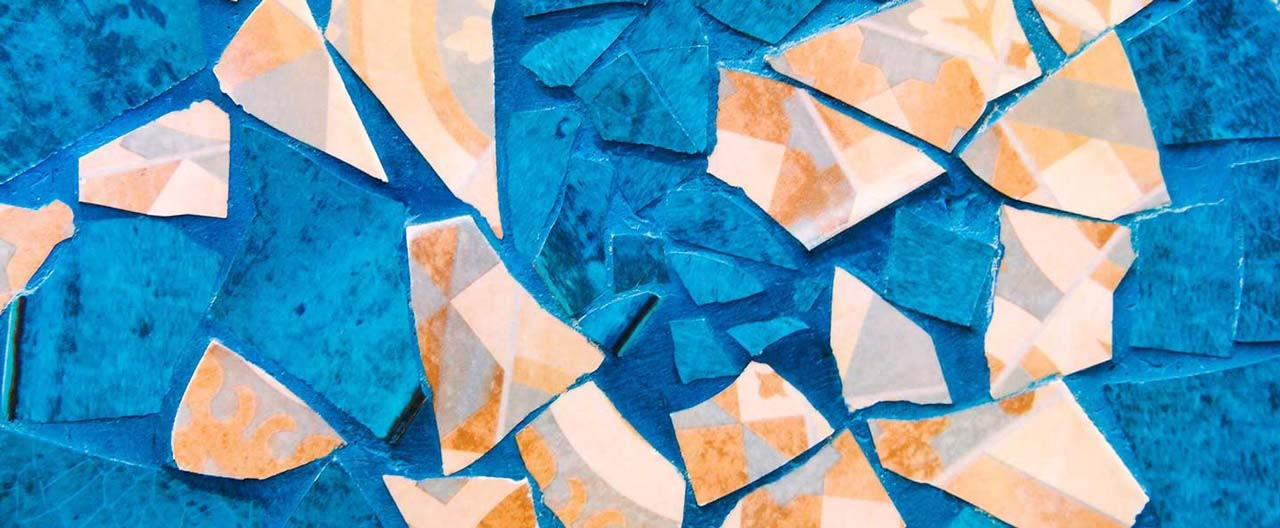Protecting your art and other valuables from earthquake damage

Earthquakes occur suddenly and without warning and can trigger landslides, avalanches, flash floods, fires, or tsunamis. Aftershocks can occur for weeks following an earthquake. Even if there is no structural building damage, an earthquake can damage or destroy the precious works of art and other valuable items you’ve spent years collecting. Follow these guidelines to prepare your home and collection in advance of an earthquake:
- Review your insurance schedule. Regularly review your schedule to confirm that values are up to date and all recent acquisitions have been added to your policy.
- Document your collection. Include photographs, detailed item descriptions and purchase information, including invoices, certificates, recent appraisals, and other paperwork. Maintain a digital backup and make sure your broker has a copy.
- Know where the shutoffs are. Be aware of the location of all shutoff valves for your home, including gas, water, and electricity.
- Inspect alarms. Inspect your home and property annually to ensure that alarm systems, including smoke detectors, are functioning properly.
- Make repairs. Identify any preexisting water marks, moisture and/or water accumulation, peeling paint, mold, and other signs of physical damage like cracks or buckling floors. Hire a licensed contractor to evaluate the source of the damage, make repairs, and restore the affected area(s) to their original condition.
- Secure your water heater. Use at least two straps fastened with anchor bolts to the adjoining wall. If it is not properly secured, the water heater could become loose and cause water and/or fire damage in the event of an earthquake.
- Install a backup generator. A generator should auto-activate in response to a power outage and should be self-assessing. This can help maintain your home’s temperature controls, humidity levels, and alarms. In the event of an earthquake, distribution lines may be impacted, and supplies may run low. Be sure you have local and regional sources for fuel.
- Coordinate with the fire department. If your residence is gated, consult with the fire department annually to ensure they have access to your property. Share gate codes, consider how they will access gates during a power outage, and make sure they have enough driveway clearance.
- Work with professional art handlers to install artwork. Items should be installed away from walls containing major pipelines, and well above areas that may flood in the event of broken water lines. Use stabilization hardware and mounts, which can prevent items from dislodging from a wall or shelf in the event of an earthquake. Depending on the type of work in your collection, this can include hardware such as:
- Locking Floreat picture hangers and D-rings
- Tensioned cables
- Floor and wall bolts
- French cleat mounting system
- Museum putty or microcrystalline wax
- Pedestals secured to the floor
- Secure vases and sculptures. These items should be secured to stabilization mounts or heavily weighted with sandbags to reduce the center of gravity.
- Safeguard small objects. Secure china, figurines, glass objects, or pottery to display surfaces using microcrystalline wax.
- Anchor heavy items. Securely cross brace and anchor heavy furnishings such as bookcases, display cabinets, and art storage units to walls, floors, and ceiling. When possible, doors should have latches to prevent them from unintentionally opening and spilling contents.
- Consult an arborist. Ask him or her to perform periodic inspections to remove dead or diseased branches and maintain the overall health of your trees. Falling trees and branches can damage outdoor sculpture and existing structures during an earthquake.
- Develop a list of vendors. You may need specific vendors in an emergency, so put together a list with contact details including email and cell phone numbers. These should include fine art shippers and handlers, conservators, and art storage facilities.
- Prepare to move items. Store prefabricated custom crates and packing materials on site or in a local storage facility in case your artwork needs to be moved from your home and stored off site temporarily.
- Review your emergency planning process with your property manager and staff annually. Provide professional training for any staff that may be handling artwork in an emergency.
- Prepare an emergency response kit for your collection. Some items may be difficult to obtain after an earthquake occurs and can be used to help prevent further damage. Your kit should include:
- Gloves – powder-free nitrile gloves for most art and heavy work gloves for outdoor sculptures
- Scissors/box cutters
- Acid-free cardboard, packing paper and painter’s tape
- Pencils, markers, and notepad
- Flashlights and batteries
- Portable chargers for cell phones
- Fans
- Extension cords
- Foam blocks (to elevate artwork)
- Plastic buckets
- Wet/dry vacuum
- Chamois cloth
- Towels
- Portable generator if you do not have a permanently installed generator
- Dehumidifier
Additional resources
For additional guidance and resources to help keep your property, family and pets safe, visit the following websites:
This document is advisory in nature and is offered as a resource to be used together with your professional insurance advisors in maintaining a loss prevention program. It is an overview only, and is not intended as a substitute for consultation with your insurance broker, or for legal, engineering or other professional advice.
Chubb is the marketing name used to refer to subsidiaries of Chubb Limited providing insurance and related services. For a list of these subsidiaries, please visit our website at www.chubb.com. Insurance provided by ACE American Insurance Company and its U.S. based Chubb underwriting company affiliates. All products may not be available in all states. This communication contains product summaries only. Coverage is subject to the language of the policies as actually issued. Surplus lines insurance sold only through licensed surplus lines producers. Chubb, 202 Hall's Mill Road, Whitehouse Station, NJ 08889-1600.

Find an Agent
Speak to an independent agent about your insurance needs.
